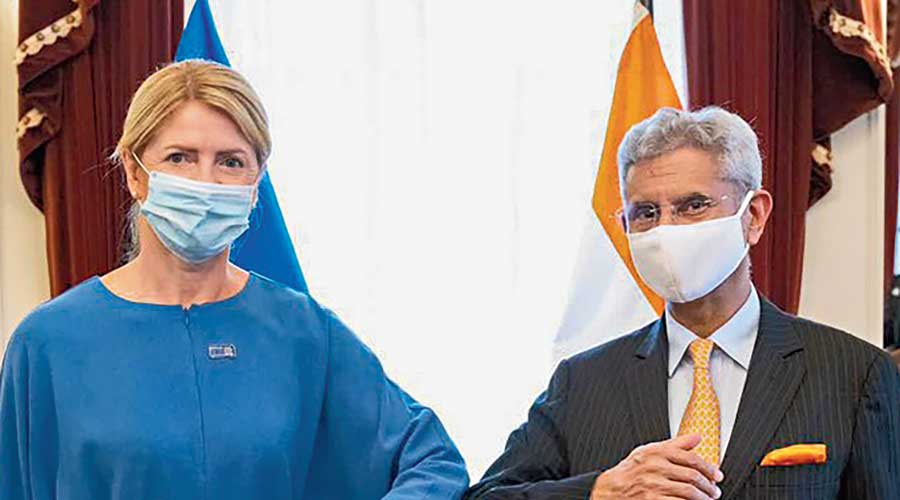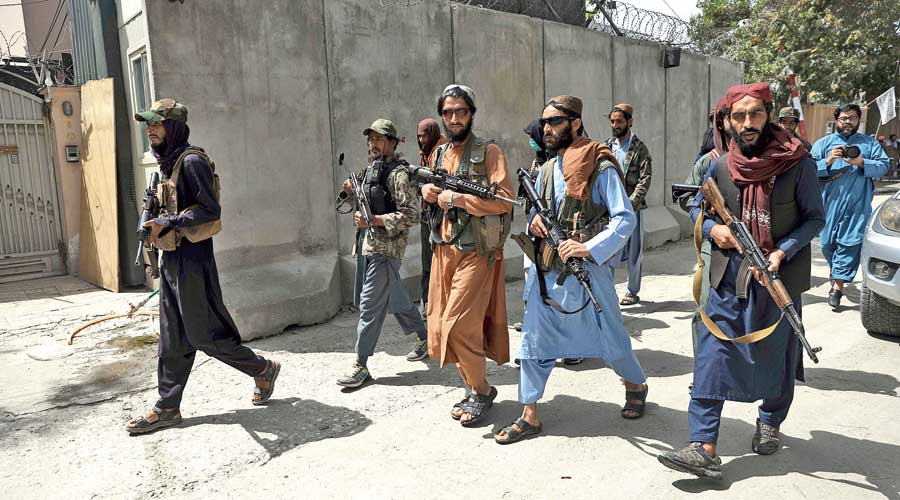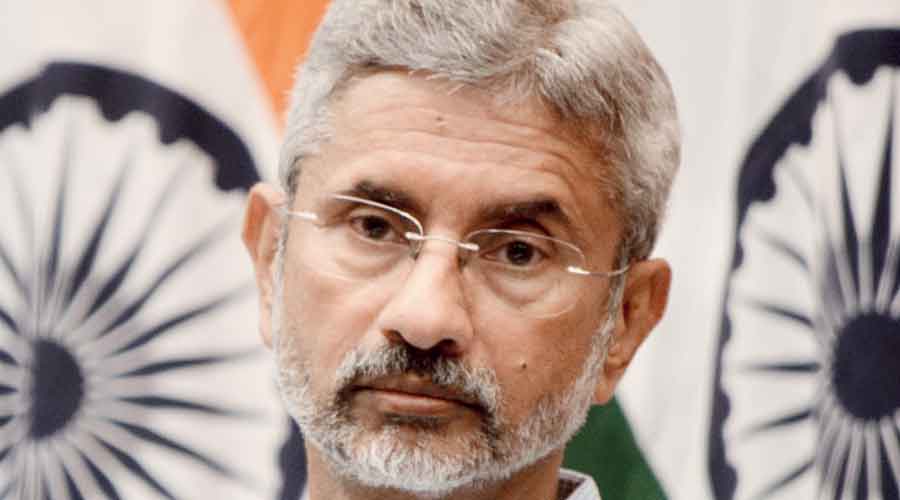When India padlocked its mission in Kabul and effected a chaotic evacuation late on Monday evening, it took more than five hours for the escaping caravan to reach the military airbase just four kilometres away.
Officials most likely tapped into tenuous links with local Taliban commanders to see themselves through, but those tortuous hours were probably symbolic of the sudden and sheer fall New Delhi has taken in Afghanistan — from being an old and deeply invested player and partner to a self-proclaimed superpower bereft of agency and panicked into abrupt ejection.
It was courtesy the American armed forces that Indian mission staff were even able to bail out.
It is evident that the swift and easy sweep of the Taliban over the Afghan capital left governments across the world numb and nonplussed. In India, it has raised sharp and critical questions over the Narendra Modi government’s anticipation and responses — logistical, strategic and diplomatic.
The blame for blundering has come to stick no less because the foreign office is helmed by S. Jaishankar, a widely-experienced former foreign secretary.
“It is too early to analyse the medium and long term implications of this radical shift in our neighbourhood, but forget that for the moment,” a career diplomat told The Telegraph.
“Why did we not secure the evacuation of our diplomats and officials, and even citizens much earlier? Everybody knew the Americans were leaving in droves and the Taliban were coming, what were we thinking? We were stoned in the head, and leaden in our feet, we just did not react or move the way we should have. Why did we have to leave in such ungainly fashion at the last minute, almost at the mercy of Taliban traffic controllers? And what are we going to do now for Indians still stranded in far Afghan corners, or our valuable human assets?”
He called the last few days an “alarming enactment of a foreign policy disaster” and went on: “We’ve been dealt a severe and strategic blow in our immediate neighbourhood, and it has happened because we obdurately blindsided ourselves, we refused to see what was coming, we let the United States misread the situation for us, we grossly neglected what we required to do in our own national interest. The Americans were leaving, we were merely getting left behind.”
Former ambassador to Afghanistan, Vivek Katju, put it more bluntly: “I have been arguing for years that we should have opened negotiations with the Taliban, more so after it became apparent to everybody that their takeover of Afghanistan was imminent. I mean the Americans were talking to them across the table, why didn’t we? Others have articulated the same advice but it got no attention from the current framers of foreign policy.”
Asked if India would not have legitimised the Taliban by talking to them, Katju said: “Look, what’s foremost is your national interest and how you serve it. There are principles and very often there are the requirements of pragmatism. After all, you often negotiate with your enemies as well, that does not mean you are embracing them or their ways. Where have we left ourselves in Afghanistan today?”
Another former ambassador to Kabul, Rakesh Sood, expressed similar misgivings during a panel discussion hosted by The Print on Tuesday. He blamed the establishment for “putting all its eggs in one basket (meaning the US basket, or the abdicated Ashraf Ghani basket)” and said that India could have thought it out much better for itself. He also felt New Delhi should have “engaged” with the Taliban. In the context of India’s scrambled exit from Kabul, Sood said New Delhi could have planned the evacuation in a much more organised way.
Speaking on condition of anonymity, a foreign policy think-tank scholar said: “We could have done many things to avoid the mess we are in, but we did not. India is a regional power, it has leverage, it has resources. We could have pressed the US to not quit in such haste, at least demonstrated our reservations. We could have prevailed upon Ashraf Ghani to give way, or if not that, open up decision-making to a larger body like a shura, a broader council of Afghan elders, to achieve a smoother transition. Instead, we merely toed what the Americans were doing and what Ghani was falsely promising he would do to resist the Taliban advance.”
There has, of course, always been a strong counter-argument in the Indian foreign policy establishment to any engagement with the Taliban.
Back in 2018, India had sent two representatives — Amar Sinha, former ambassador to Kabul, and T.C.A. Raghavan, former envoy to Islamabad — for talks on the evolving future of Afghanistan to Moscow. “They were sent with express instructions to not even look at the Talibanis on the table,” a foreign policy insider said.
Deep reservations about the Taliban in the Indian establishment spring not merely from their bellicose Islamist and militarist mien; they are equally, if not more, predicated on the Taliban’s close ties with Pakistan and a deep, and justified, scepticism about establishing trust with the mainly Pashtun militia which now holds sway over most of Afghanistan.
The conviction that the Taliban will forever do Pakistan’s bidding even if India were to try and make deals with them, runs strong across South Block.
As another former ambassador, Deb Mukharji, said: “Look, the Taliban know where India stands in relation to them, you cannot sweet-talk them into deals, and they are not reliable people. This is a very difficult area for many reasons. But that said, if we had not blindly followed the US script in Afghanistan, we probably would have known better.”













